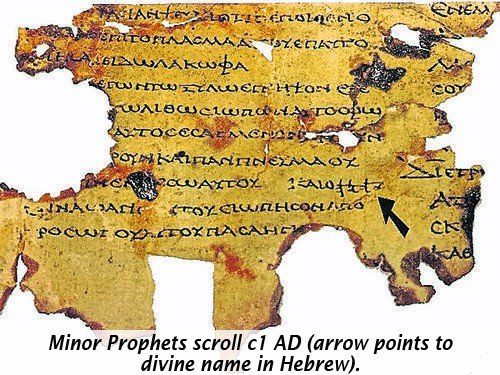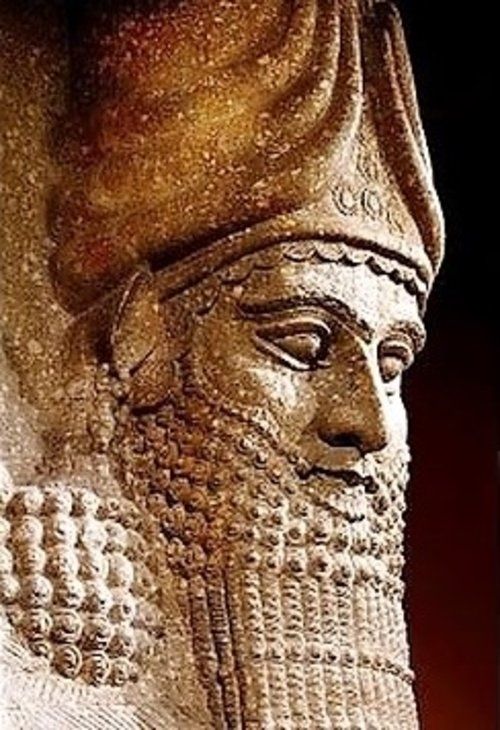Here we go again! Cards and crackers, parties and presents, feasting and fun, mistletoe and make-believe, turkey with all the trimmings and decorations soon to become debris – it must be Christmas!
The build-up seems to begin earlier every year. By the early days of December the Christmas juggernaut is on auto-pilot. It sweeps everything else aside until it lands us, bloated and exhausted, in that strange, colourless week that takes us to New Year’s Eve.
Then there is another orchestrated fling before we button our coats and wallets and begin to battle with the dark days of January.
Simply staggering
Am I the only one who feels that Christmases are not what they used to be? It is a cliché, I know, but it all seems so commercial these days. Glitter has taken the place of wonder, and we always seem to be rushing instead of reflecting.

There is no doubt in my mind that one reason for elbowing the real Christmas out of the way is that the whole celebration is based on the Bible – which many people feel is little more than fable or sentimental folklore.
Yet although so many reject it out of hand, the Bible’s circulation figures are simply staggering. In the five years to the end of 2002 the United Bible Societies distributed worldwide more than 2,979,000,000 copies of the Bible (in whole or in part). And this takes no account of the countless millions bought every month.
In almost every language
The translation figures are equally impressive. Two hundred years ago, the Bible in whole or in part was available in just sixty-eight languages. By the end of 2002 this figure had risen to 2,203.
These languages cater for well over 90% of the world’s population, while translation projects are currently under way in more than 600 further languages, over 500 of them for the first time.

Yet no other book known to man has been so hated, vilified and attacked. Early Roman emperors ordered their soldiers to destroy every copy they could find. In 1382, reading the first English translation was prohibited by law.
Marxism destroyed millions of copies in every nation it governed. There are still countries today where it is a criminal offence to sell or distribute it. Walk off a plane in these countries with a Bible in your hand and you would be on your way to prison.
Yet it is at a ‘gentler’ level that millions of ordinary people today are pushing the Bible to one side. Why? Here are some of the reasons given.
Can we trust the Bible documents?
‘How can we know that the text is anything like the original?’ This is a perfectly fair question.
Before printing was invented in the fifteenth century, all copies of the Bible were made by hand and passed down to succeeding generations. Then, surely, many mistakes must have occurred, corrupting the Bible’s wording and meaning?

The short answer is that leading experts in the field have shown that the evidence for the essential accuracy of the Bible is massively stronger than for any other ancient document.
Furthermore, our earliest copies are much closer to the original than is the case for other works.
Yet inferior manuscripts are accepted without question. For example, nobody doubts that Julius Caesar came to Britain in 55 B.C., but we have only a tiny handful of fragments that tell us this, the earliest written over 900 years after the event!
On the other hand, we have thousands of ancient biblical manuscripts, some dated within decades of the events they describe.
Full of mistakes?
‘The Bible is full of mistakes’. My usual approach when anybody tells me this is to say, ‘Then show me a dozen’.

This usually brings the attack to a grinding halt – which is hardly surprising when we realise the impressive way in which the Bible’s statements are confirmed by external evidence.
To give one striking example, Professor Robert Dick Wilson, a renowned expert in the field, studied the language and literature of the Middle East for forty-five years, focussing especially on data relating to the biblical record.
He eventually came to the conclusion that whereas statements found elsewhere were often corrupt, those he found in the Bible were invariably accurate. In one case (relating to the reigns of forty kings over a period of 1,600 years) he calculated that there was only one chance in 750,000 billion billion that this was ‘mere circumstance’.
This impressive endorsement was echoed by Dr Nelson Glueck, the world’s leading biblical archaeologist, who excavated over 1,000 sites in the Middle East and claimed, ‘It may be stated categorically that no archaeological discovery has ever controverted a biblical reference’. So much for fables and folklore!

No longer relevant?
‘The Bible is irrelevant in today’s world’. This is a common criticism, but impossible to sustain. The Bible is as up to date as today’s headlines.
For example, the Bible has a great deal to say, directly or indirectly, about divorce and remarriage, alcoholism, substance abuse, stress, depression, violence, murder, war and natural disasters.
It speaks to man’s most damaging emotions, such as anger, guilt, fear, doubt and anxiety.
It condemns dishonesty, immorality, arrogance, greed, selfishness and obscenity. Are these not relevant today?

It sets out clear principles that can be applied to contentious moral and ethical issues – like abortion, euthanasia, homosexuality, human cloning and other forms of genetic engineering. Are these irrelevant?
The Bible has much to say about family life, the proper enjoyment of sex, employers’ (and employees’) responsibilities, social justice, business integrity and personal finances. It teaches how to cope with poverty, sickness, rejection, bereavement and other personal traumas.
Love, joy and peace
To quote directly, the Bible also points the way to experience ‘love, joy, peace, patience, kindness, goodness, faithfulness, gentleness and self-control’ (Galatians 5:22). Are these of no importance to us?

It directly addresses animal welfare and the care of the environment. It has some very challenging things to say about the ‘haves’ and the ‘have nots’, and emphasises our duty to help the sick, the disabled, the poor, the homeless and the dispossessed.
It particularly pinpoints the special needs of widows and orphans. Can we wash our hands of all of this?
Science vs the Bible?
‘Science has disproved the Bible’. This statement is not only untrue, but impossible. Firstly, it is untrue because no genuine scientific discovery has ever shown the Bible to be in error.
In 1861 the French Academy of Science published a booklet listing fifty-one ‘scientific facts’ to show that the Bible could not be trusted. Yet today’s scientists reject every one of these so-called ‘facts’.

Sir Isaac Newton, one of the fathers of modern science, was right when he said that the Bible was ‘a rock from which all the hammers of criticism have never chipped a single fragment’. Many highly reputed scientists today still support this contention.
Secondly, it is impossible for science to disprove the Bible because, in spite of its massive achievements, science can say nothing about man’s relationship with God – which is what the Bible is all about.
Track record
Why believe the Bible? Firstly, because in every way that we can test it with external evidence it proves to be accurate. A book with such a phenomenal track record deserves to be taken seriously.

Secondly, because of its amazing unity. Although its sixty-six books were written by some forty authors over a period of about 1,500 years, it holds together like no other collection of writings known to man. The Bible’s internal consistency gives us a strong reason for believing what it says.
Thirdly, we should believe the Bible because of its staggering accuracy in foretelling future events. Something like 30% of it consists of prophetic writings – and not one of its prophesies has ever been shown to be false.
This puts it in another league to horoscopes, crystal balls, tea leaves and tarot cards!
Word of God
Fourthly, we should believe the Bible because of its claim to be nothing less than ‘the living and enduring word of God’. In the Old Testament alone there are almost 4,000 such claims. The New Testament writers also made it crystal clear that they were not making up their words as they went along, but that they wrote only and exactly the words God gave them.

Would a book so amazingly true in other matters – and which insists on honesty and integrity – make thousands of corrupt and dishonest claims about its origin?
Fifthly, we should believe the Bible because of its unique power for good. I know that ‘religion’ has much evil to answer for, but history shows that religion only goes astray when it departs from the Bible.
Millions of people over thousands of years testify that its message has transformed their lives, making them vastly better husbands, wives, parents, children, employers, employees, friends – people.
What is more, the Bible has been the inspiration and basis for more social reform than any other book in the history of the world.

Amazing love
There is one final reason for believing the Bible. It tells us what Christmas is really all about – a God of amazing love who came into the world in the person of his Son, Jesus Christ.
He came to rescue sinful men and women from their moral and spiritual predicament and bring them into a living personal relationship with himself, both here and in the world to come.
The baby born at Bethlehem was not merely human but divine – God himself, who ‘came into the world to save sinners’.
In his perfect life Jesus met all the demands of God’s holy law. In his death he bore the dreadful penalty that human sin deserved.
In his resurrection from the dead he showed that that penalty had been paid in full and that all who turn from their sin and trust in him are forgiven by God and receive eternal life.
The Christmas story is not about sentiment but salvation, the greatest gift anyone can ever receive.
Get hold of a Bible and, in the news vendor’s famous phrase, ‘Read all about it!’




